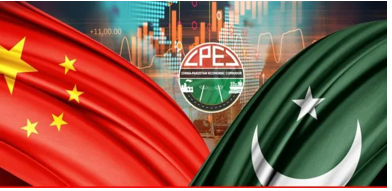آئی این پی ویلتھ پی کے
Ayesha Saba
The second phase of CPEC carries significant potential to uplift the marginalized communities and promote equitable regional development. However, experts stress that its success depends not just on Chinese investment but critically on Pakistan’s own policy coherence, institutional strength, and active involvement of local communities.

Talking with WealthPK on the condition of anonymity, an official at the CPEC Authority, Ministry of Planning, Development and Special Initiatives said, “With the groundwork laid in the early harvest phase, we have now entered a new dimension that prioritizes human capital, rural uplift, and sectoral development in education, healthcare, agriculture, and disaster resilience.”
According to the official, the core vision behind the socio-economic initiatives is reduction in poverty and improvement in the overall welfare. “These projects span across critical sectors such as healthcare and education, in addition to addressing the other fundamental requisites,” he explained. He elaborated on several ongoing and upcoming projects, including the installation of 3,000 to 3,500 solar panels on rooftops in Gwadar, made possible through the Chinese support and partnerships with local NGOs.
The other initiatives include emergency relief support, training courses, and collaborative research on rural poverty reduction. In the water sector, drinking water equipment and Gwadar desalination plant are key interventions targeting basic needs in underserved communities. He also remarked that agricultural modernization is also high on the agenda, with China supporting Pakistan through technology transfer, improved seed varieties, and irrigation systems.
He views this as a game-changer for rural poverty. “China’s success in lifting over 800 million people out of poverty was largely rural-based. Pakistan can emulate that by linking farmers with the CPEC’s logistics network and agri-processing units,” he argued. The second phase includes major investments in social infrastructure, with plans to establish hospitals, vocational training centers, and schools in underdeveloped regions like Balochistan and Khyber Pakhtunkhwa.
Dr. Abid Qaiyum Suleri, Executive Director of the Sustainable Development Policy Institute (SDPI), noted, “Education and healthcare are the bedrock of inclusive growth. These projects will equip Pakistan’s workforce with the skills needed for a competitive economy.” While the potential of CPEC Phase-II is immense, he stressed the importance of transparency and community engagement to ensure equitable benefits.
Strong governance mechanisms are essential to prevent elite capture and ensure that development reaches the most vulnerable. Suleri underscored the government’s urgency to accelerate implementation and deliver on the promised outcomes without delay.
Credit: INP-WealthPk












